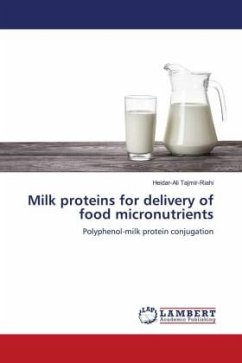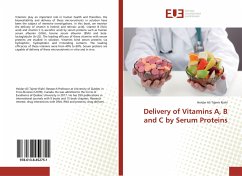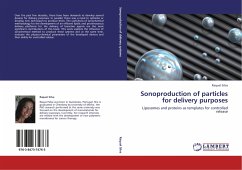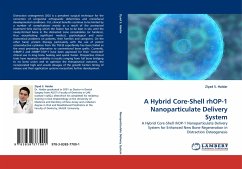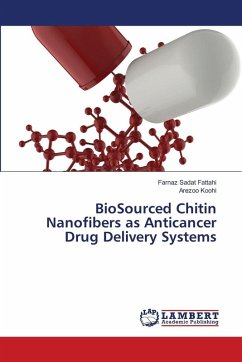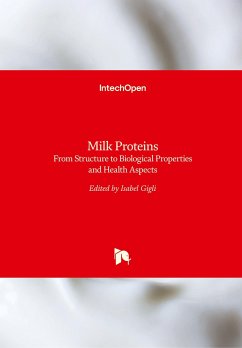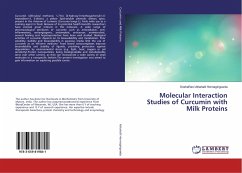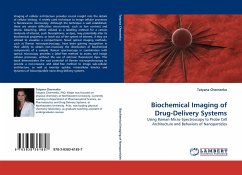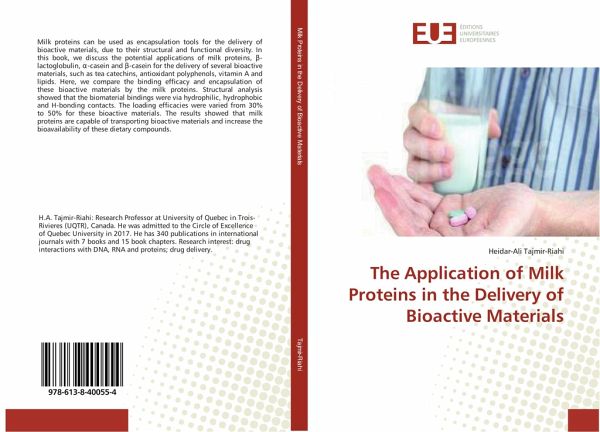
The Application of Milk Proteins in the Delivery of Bioactive Materials
Versandkostenfrei!
Versandfertig in 6-10 Tagen
27,99 €
inkl. MwSt.

PAYBACK Punkte
14 °P sammeln!
Milk proteins can be used as encapsulation tools for the delivery of bioactive materials, due to their structural and functional diversity. In this book, we discuss the potential applications of milk proteins, beta-lactoglobulin, -casein and beta-casein for the delivery of several bioactive materials, such as tea catechins, antioxidant polyphenols, vitamin A and lipids. Here, we compare the binding efficacy and encapsulation of these bioactive materials by the milk proteins. Structural analysis showed that the biomaterial bindings were via hydrophilic, hydrophobic and H-bonding contacts. The l...
Milk proteins can be used as encapsulation tools for the delivery of bioactive materials, due to their structural and functional diversity. In this book, we discuss the potential applications of milk proteins, beta-lactoglobulin, -casein and beta-casein for the delivery of several bioactive materials, such as tea catechins, antioxidant polyphenols, vitamin A and lipids. Here, we compare the binding efficacy and encapsulation of these bioactive materials by the milk proteins. Structural analysis showed that the biomaterial bindings were via hydrophilic, hydrophobic and H-bonding contacts. The loading efficacies were varied from 30% to 50% for these bioactive materials. The results showed that milk proteins are capable of transporting bioactive materials and increase the bioavailability of these dietary compounds.



